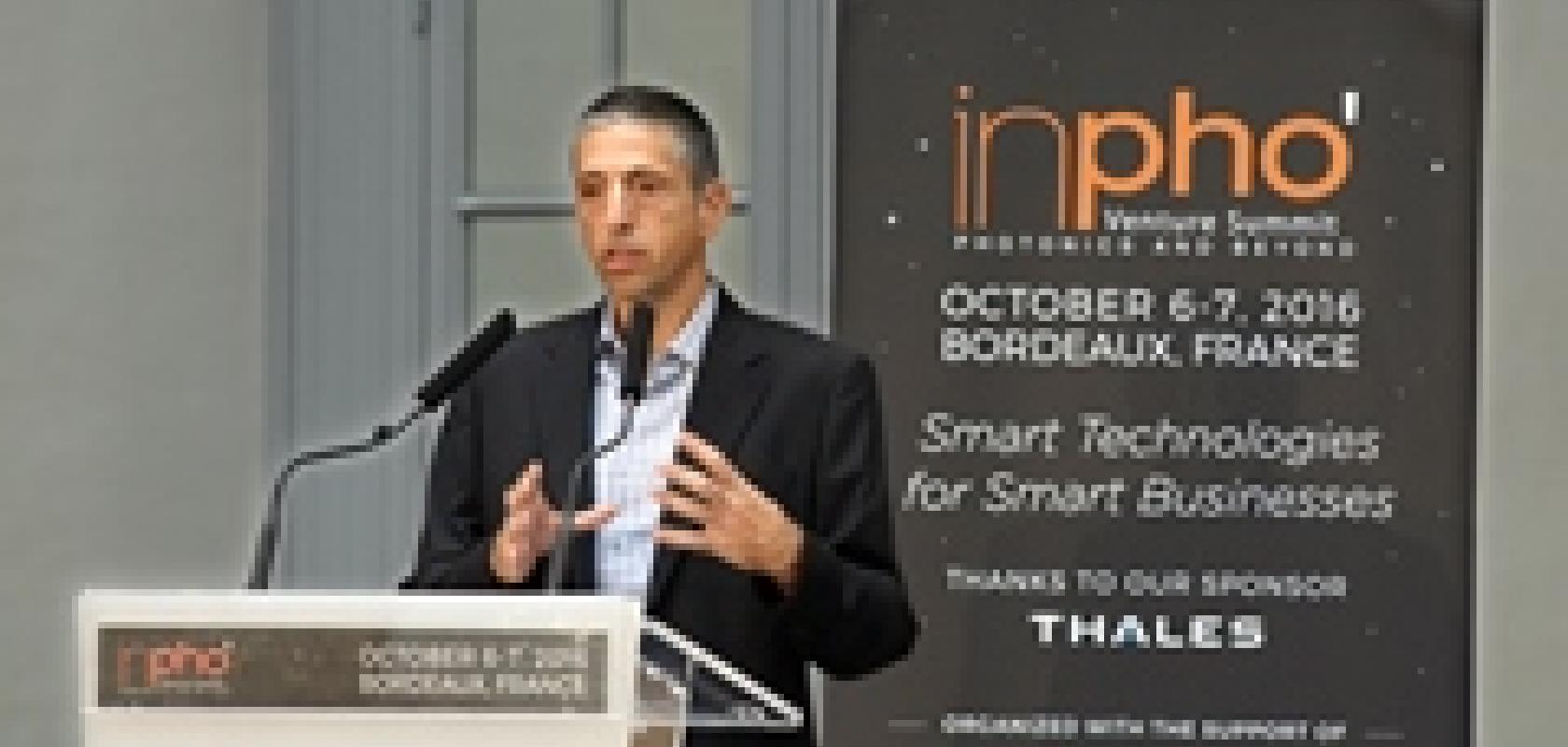Jessica Rowbury covers an autonomous vehicle panel session from October’s Inpho Venture Summit, where the role of photonics was discussed
Photonics could play a key role in realising fully autonomous vehicles, not just through sensing and enabling technologies, but by giving new driving experiences. This was one of the conclusions made during a panel discussion on mobility at the Inpho Venture Summit, which took place in Bordeaux, France in October.
The biennial event, formerly known as Invest in Photonics, saw 23 early- to late-stage smart technology firms, the majority based in Europe, pitching investors to collectively target €75 million in funding.
The pitches were aimed at markets areas of mobility, big data and healthcare, internet of things (IoT) and the smart grid; sectors that Inpho believes offers investors the most bankable opportunities.
In the area of mobility, for example, autonomous cars are expected to create a $42 billion market for technology by 2025, according to a report by the Boston Consulting Group, and, by 2030, sensors for autonomous cars could be worth $36 billion, analysis by Yole Développement has found.
Anne Laliron, vice president of innovation strategy at French car maker PSA Group, commented during the Inpho Summit’s ‘future of mobility’ panel discussion: ‘When you are considering a car without a steering wheel and the furniture in different positions… we will have to give the drivers (who are now users) completely new experiences. There is a huge potential for photonics in terms of comfort and convenience and renewing the experience on board the car.'
PSA Group is a French car manufacturer sold under the Peugeot, Citroën and DS Automobiles brands.
In recent years, major automotive players, transport companies and technology giants have poured significant investment into projects aimed at advancing self-driving vehicles. Photonics underpins many of the functions of autonomous cars, from mapping and navigating its surroundings, to car-to-car communication.
But in terms of getting autonomous cars onto the road, progress seems to be slow. Whereas automated functions such as braking, speed and stability are standard in most new cars, fully autonomous vehicles capable of driving on busy roads without any human intervention still seem to be a long way off. ‘It’s not a technology of tomorrow, but after tomorrow,’ said Laliron.
Moderator of the session, Dieter Kraft, an investment partner at Robert Bosch Venture Capital, pointed out that ‘every OEM has been working on autonomous vehicle testing for two decades. So, why don’t we see fully autonomous vehicles on the road today?' He asked the panel.
‘People are saying “we’re finally there! We’re going to see self-driving vehicles driving around!”’ said Aymerik Renard, director of Western Digital Capital. However, there is still huge progress that needs to be made for such statements to be realised, Renard said, not only on the technology front – he pointed to improved coating and testing methods – but concerning issues of liability, regulation, and infrastructure.
Adding to this, Laliron commented that while sensor technology is key for ensuring safety and correct navigation on the roads, market and driver acceptance is just as crucial: ‘Our customers – are they ready to give up the wheel? Some still want to drive,’ she said.
Affordability will also impact user adoption, Laliron pointed out. Although PSA has customers buying vehicles with autonomous functionality, ‘they are paying,’ she said. ‘We need to reduce the cost of all of the sensors and intelligence if we want to see the technology spread.’
Francois Badoual, CEO of Total Energy Ventures, added that reliability, safety, appearance, and whether autonomous cars will be available 24/7 may also impact whether people will actually buy autonomous cars. ‘There is a major shift of going from a driver to a passenger… it is a new experience,’ he said.
From an investor’s point of view, Renard added that a lot of private investment is going into smart gadgets that are adding more smart functions to cars – such as devices that assist parking or navigation. He then went on to ask whether consumers in the future would be more likely to adopt these types of accessories to their existing vehicles, as and when they feel fit, rather than changing their driving experience altogether with a fully autonomous vehicle.
But creating a new and exciting user experience could potentially have a huge impact on user adoption, Laliron remarked, and this is where photonics could play an additional role in making autonomous driving a more attractive and entertaining method of transport.
The other panel discussions during the Inpho Venture Summit resulted in further interesting conclusions. The telecom panel pointed to the regulatory environment as a challenge in competing for new revenue streams. Julian Lucek, distinguished systems engineer at Juniper Networks, said that as capacity grows, within five years products will need to offer eight times the performance. Amongst areas offering opportunities for growth he listed the need for new ASIC, memory bandwidth for packaging forwarding, new physics and silicon photonics.
The ‘better data for better treatment’ panel concurred that digital technology for healthcare applications is moving very fast, ahead of industry regulations that are playing ‘catch up’.
Predicting disease was highlighted as an area where digital technologies could play a major role, in particular in devices that ‘understand’ how our bodies ‘react to the daily round of treatment,’ said Mark Lightowler, CEO of Phorix, a company focused on catalysing healthcare innovation and improved patient outcomes. He added that it would be important to integrate this technology into everyday objects, otherwise you ‘introduce a need for behavioural change’ in patients, which could impact the therapeutic process.
The ‘IoT and smart grid’ panel talked of the rising trends in converging energy and digital technologies. The two market drivers are: decentralisation, where the scale of economies will be reached with distributed energy such as solar PV or windmills; digitisation, where flexibility and dispatchable energy sources linked to renewable energy growth will be required to provide a digitally controlled and stable supply.
Thales sponsored this year’s conference, hosting 155 attendees from a range of industries and the international financial community, including UBS Investment Bank, Suez Groupe, Hamamatsu Photonics France and the Trumpf Group. The next InPho Venture Summit is planned for 11-12 October, 2018.
Further information


